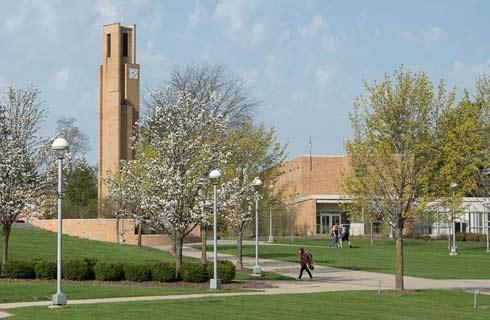地表,环境和能源哲学博士-沉积学,地层学和地表过程
Doctor of Philosophy in Environmental Sciences - Biogeochemistry

学历文凭
Ph.D.

专业院系
Earth Science

开学时间

课程时长

课程学费

国际学生入学条件
IDP—雅思考试联合主办方

雅思考试总分
7.0
- 雅思总分:7
- 托福网考总分:90
- 托福笔试总分:160
- 其他语言考试:Duolingo. A minimum score of 115 is required.
CRICOS代码:
申请截止日期: 请与IDP联系 以获取详细信息。
课程简介
Biogeochemical cycling is critical to understanding how the oceans, atmosphere, biosphere, and soils physically and chemically interact to modulate climate and the environment we live in. Of interest are the roles of biogeochemistry in nutrient cycling in terrestrial and marine ecosystems, physical and chemical weathering, kinetics of mineral dissolution and growth, element transport in the oceans, alteration of the crust, hydrocarbon formation and degradation, and soil ecosystems. Biogeochemistry also has societal applications in the form of carbon sequestration, agriculture, environmental remediation, and energy. At Rice, biogeochemistry has lent itself well to inter-departmental collaborations. Such collaborations include the biochar initiative and the Keck Foundation-sponsored biosensor group.
相关申请
 预科
预科 奖学金
奖学金 实习机会
实习机会 在校学习
在校学习 跨境学习
跨境学习 校园授课-线上开始
校园授课-线上开始 在线/远程学习
在线/远程学习
开学时间&学费
学费信息仅供参考,请与IDP联系以获取详细信息
| 开学时间 | 时长 | 学费 | 地点 |
|---|
学校排名

世界排名86
数据源:
泰晤士高等教育世界大学排名
关于莱斯大学

莱斯大学是西南部最好的大学,在整个南部也只有杜克能与其相提并论。多年来以科学、工程、艺术、人类学闻名,并始终秉承低廉的学费与高水平教学并存的态度。建筑学是全美最好的本科项目之一,同时它的空间物理学科与美国国家航空航天局紧密合作。在梅隆研究员项目中,人文和社会科学专业将与教师导师们合作,共同进行学术项目的研究,同时会提供一定的夏季研究津贴。莱斯大学鼓励学生们选双专业、甚至三专业科学与工程学都是最好的学科,因此,这两门学科的竞争也特别的激烈。学校大概有4%的学生选择了双专业。,而且经常是“电气工程”和“艺术史”这种看起来毫不相干的领域相搭配。生物科学是最受欢迎的学科,其次还有运动学,经济学,心理学和英语。
本校相关课程
其他相关课程

环境科学理学学士
 罗格斯新泽西州立大学纽瓦克分校
罗格斯新泽西州立大学纽瓦克分校学历文凭
Bachelor Degree
开学日期
课程费用总额


Doctor of Philosophy in Applied Science - Atmospheric and Environmental Science
 威廉与玛丽学院
威廉与玛丽学院学历文凭
Ph.D.
开学日期
课程费用总额


Master of Arts in Marine Affairs - Climate Adaptation and Resilience
 罗德岛大学
罗德岛大学泰晤士高等教育世界大学排名:976
学历文凭
Masters Degree
开学日期
课程费用总额


Bachelor of Science in Design and Environmental Analysis
 康奈尔大学
康奈尔大学泰晤士高等教育世界大学排名:18
学历文凭
Bachelor Degree
开学日期
课程费用总额


Bachelor of Arts (BA) Degree with a Major in Earth, Environmental, and Planetary Sciences
 莱斯大学
莱斯大学泰晤士高等教育世界大学排名:103
学历文凭
Bachelor Degree
开学日期
课程费用总额


Master of Science in Environmental Science (Chattanooga Campus)
 田纳西大学
田纳西大学学历文凭
Masters Degree
开学日期
课程费用总额
















